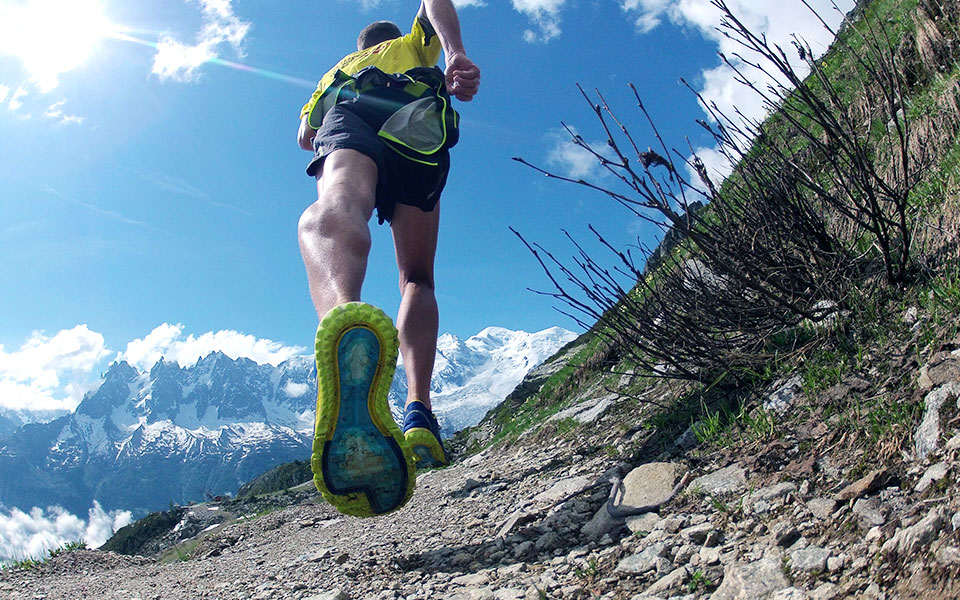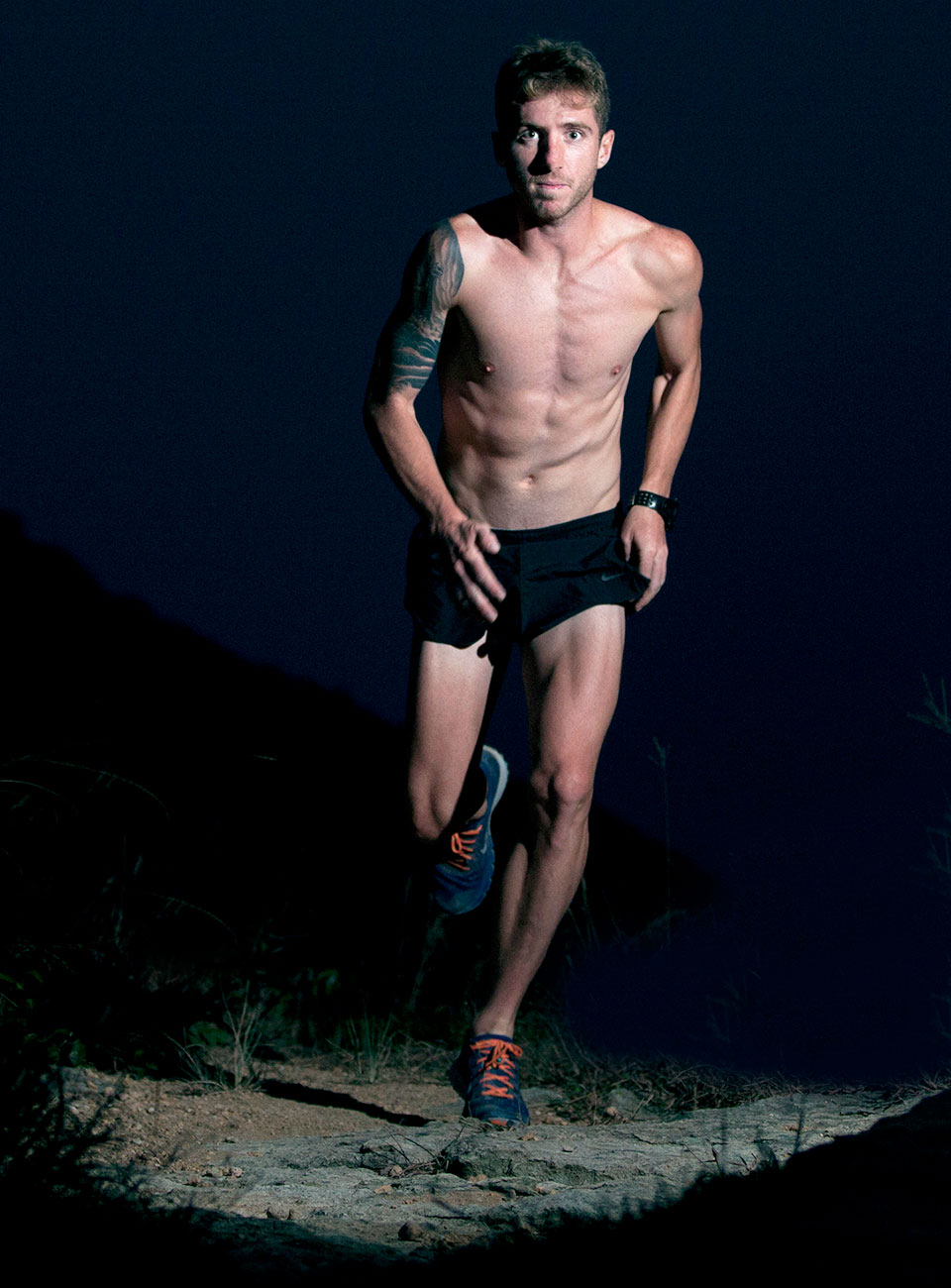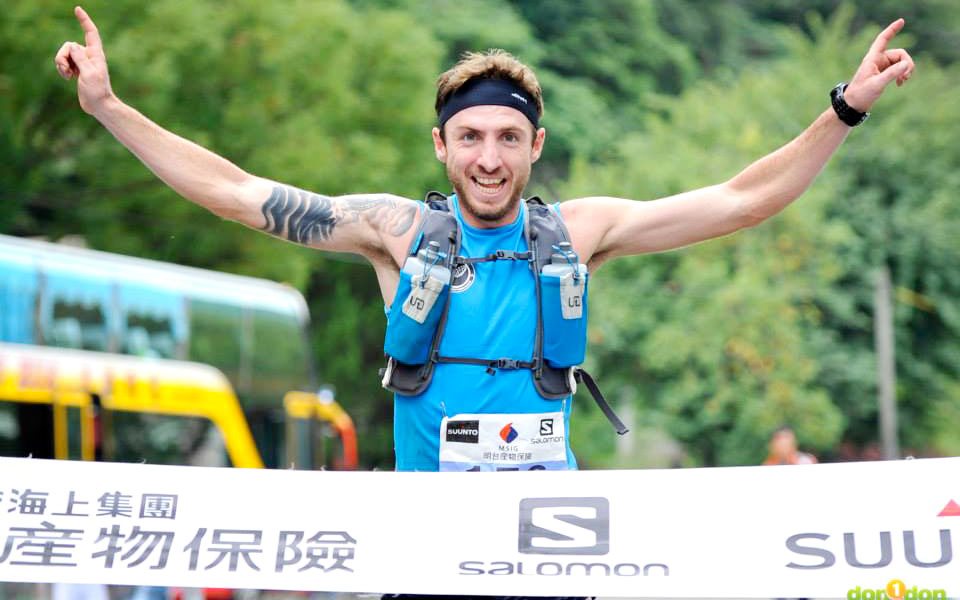Vlad Ixel is the quintessential man of the world. Born in the Ukraine, he moved to Israel at age four where he immediately caught the athletic bug. Another relocation to Australia as a teen proved difficult because he didn’t fit in right away, but Vlad’s enthusiasm for sports helped him make friends. It didn’t hurt his image that he became a tennis star at 17! After taking time to indulge his inner party animal, he made a fateful decision to pursue marathon running. A second place win at an ultra sealed his fate, but since he’s only 28, Vlad’s life story is literally just beginning.
RS: You started running in 2012, yet your achievements are stellar! Do you have a gift for running?
Vlad: I don’t think I have a gift for running, but I’m a good all-around athlete. I’ve worked hard by training upwards of five hours daily. Fortunately, I’m obsessive, so from the beginning, I approached training in a very professional way and I’ve stayed injury-free as a result.
RS: How long have you been a vegan?
Vlad: My vegan lifestyle coincided with my running career start, so it’s been roughly three years.
RS: What advice do you give to runners who are interested in veganism?
Vlad: I recommend a healthy, high-calorie diet—a mix of macro nutrients (proteins, carbohydrates and fats) and micro nutrients (vitamins and minerals). I’m really picky about produce—fruits, vegetables, nuts and legumes. I suggest stuffing a refrigerator with the highest-quality produce available.
RS: Do you see running as a loner sport?
Vlad: Far from it. The running community is phenomenally warm and welcoming; it’s like joining a loving family. Obviously, training and running can be lonely activities, but I embrace the loneliness. It has helped me build my character and mature.

RS: You undertook your first ultra at the 250km Atacama Crossing Race after a short transition. How did you prepare in such a short time?
Vlad: I lived in Perth during the lead up to the Atacama. The city is an ideal training ground for this race, so I could train properly for it. Perth gets hot in spring and summer. I ran during the middle of the day with a heavy backpack—on road and on sand. The only thing I could have added was elevation. Otherwise, I prepared well.
RS: It’s no secret that Africans are formidable runners. Compared to Western and Asian runners, who’s best?
Vlad: I gained insights on this topic by reading The Sports Gene by David Epstein. He analysed runners from different regions and discovered why runners from certain parts of the world win so often. It’s a blend of genetics (longer limb-to-torso ratio), environmental factors (living at elevation) and cultural traits.
RS: What were your most memorable races?
Vlad: The Most Beautiful Thing in Sabah was my first and most memorable 100km event. It was rewarding to finish the race, let alone win it! Participating in world championships at Chamonix was also memorable.
RS: How about your toughest challenge?
Vlad: No contest! Ice Trail Tarentaise was the most challenging event I’ve undertaken thus far. One climbs and descends 12,000m+, most of which is at elevation and on ice and snow, throughout the 65km+ route. Needless to say, it was bloody cold. That race tested my resolve.
RS: What’s your best distance? Is it the 100km?
Vlad: It depends on which 100km race you’re talking about. I’m best suited to technical trails, short, steep uphills and downhills. I set high performance standards for myself and I could improve both my flat running speed and endurance on long uphill sections. In general, I’m suited to 100km racing. On the other hand, I have great stamina. I don’t tire easily or get fatigued like many 100km runners. A favourite distance? I love them all.
RS: If we looked into your gym bag before a race, what would we find there?
Vlad: That depends on the race. For example, I needed poles for the TransLantau 100 several weeks ago! When I pack for a 100km, I always take two types of gels; with and without caffeine. I save the caffeine-laced gels for later when I need a boost. I also believe that shoe choice should be race specific. If a track is muddy, I need tread and traction. For road races, I prefer something light that offers support and traction.
RS: We talked about running injuries earlier. You said that you were able to train so well for ultras because you haven’t sustained injuries, but does that mean you never suffered one?
Vlad: Actually, high-mileage running, if done without a good recovery plan—combined with poor nutrition—can lead to injury. I over-trained at the start of my career. I sustained a knee injury during the Ice Trail. It took eight weeks to fully recover; I cross-trained and added quad exercises to expedite the healing process.

RS: Do you have a personal life and family?
Vlad: (Laughs) Yes, but I admit to being selfish, so my relationships can suffer.
RS: Do you have a girlfriend—or are you looking for one?
Vlad: I have a girlfriend and her lifestyle is similar to mine, which is a plus. She’s also a vegan. She practises Yoga daily and she runs.
RS: Who inspires you most? Are there times you have to inspire yourself?
Vlad: Runners like Kilian Jornet inspire me, and because I’m hyper-competitive, there are times I must inspire myself to keep going.
RS: You are the quintessential self-made athlete. How do you choose resources and materials?
Vlad: I’m curious about gear, materials and resources, so I do a lot of research, but I’m not parochial about it. I’m particularly interested in what athletes do to improve their recovery times.
RS: How do you make sure you’re training correctly?
Vlad: Running remains a relatively new sport; trial and error marked my early training process. I started with extremely high-mileage (200km +) and although I got good results, I also broke down fast. I now temper my mileage, add more specificity to my workouts and increase my cross training and active recovery workout with yoga, strengthening and flexibility exercises.
RS: You’ve launched a new race called The Great Relay (TGR) to be held in Singapore on 13 June following the same event staged in Hong Kong this year. Can you tell us about it?
Vlad: Where shall I start? First, the reception in Hong Kong was very positive. I can’t thank the people we met there enough; without their help, my co-race director Eti Rodriguez and I couldn’t have pulled it off! The Singapore event will have the same trail running and baton-passing format: two-, four- or six-member teams compete on a loop of either 50km or 100km. The efforts runners put into their laps benefit team times and placements, so everyone contributes to the totals.
RS: What challenges did you face as a new race organiser?
Vlad: I’ll be honest; it was tough—which is why Eti and I were lucky to have support from people like Carol Cunningham and legions of others. There’s a lot of pre-race work to be done, like acquiring sponsors, marketing and gaining permits. I believe that our attention to detail in advance of the Hong Kong TGR paid off.
RS: You’re also a running coach. What advice do give as a coach?
Vlad: Go to myCoach and sign up! I’m kidding. My advice is to increase mileage incrementally and work hard to mitigate the chance of injury. This means eating well and recovery exercises. It’s worth the investment to hire a knowledgeable coach who can guide a new runner through the early stages, too.

RS: What are your goals for the remainder of 2015?
Vlad: Once the Singapore TGR is over, I’ll go to Transvulcania in La Palma in May. Otherwise, my calendar is mostly filled with Asian-based events. I also plan to grow my online coaching business this year.
RS: Is anything pleasurable on your 2015 agenda?
Vlad: (Laughs) I find all of the activities I’m involved with to be pleasurable, but let’s just say that I don’t picture myself sitting on a beach this year with a cocktail in hand. That mental image is cool, but I’m not wired to sit around, no matter what’s in my hand!
The journey from runner to running event organiser is no easy one, but if anyone can pull it off, Vlad and his team can. His example begs the question: What one thing would you suggest to race organisers that would make your experience better, more efficient or just more fun? We await your clever answers.
Do you want to take part in an interesting inaugural relay race that showcase your team co-operation ability? The Great Relay Singapore is now open!




